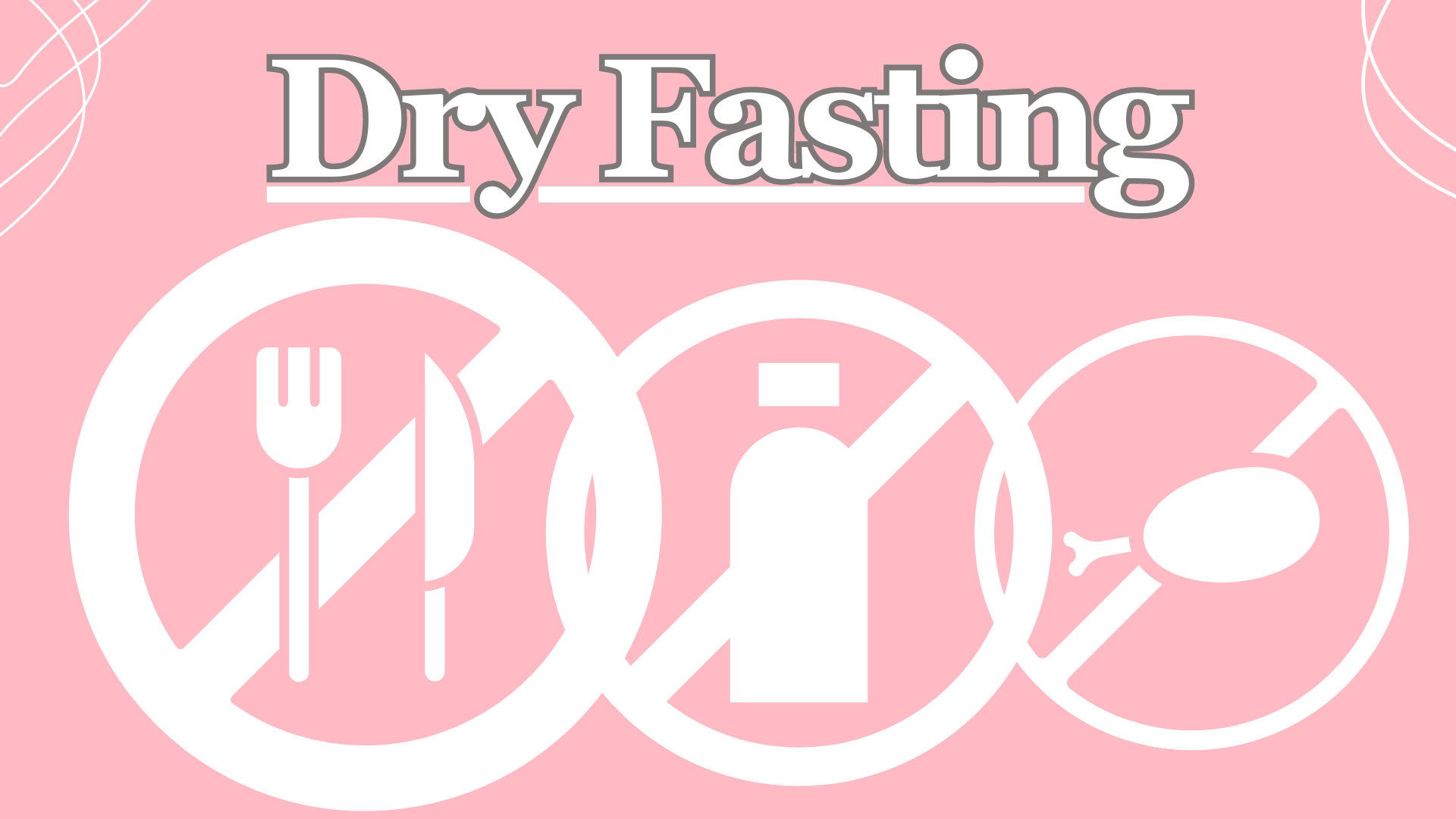
Benefits Of Dry Fasting
What Is Dry Fasting?
Dry fasting benefits, which encompass various physiological changes, have garnered attention in the realm of fasting and health practices. Dry fasting is a unique fasting method that involves abstaining from both food and water for a specific period. This practice triggers specific adaptations in the body, leading to potential dry fasting benefits that set it apart from other fasting approaches. Let’s delve into what dry fasting entails and explore the specific benefits it offers.
One of the primary dry fasting benefits is its ability to promote autophagy, a natural process in which the body removes damaged cells and waste materials. During dry fasting, the absence of food and water intake triggers a more intense autophagic response compared to other fasting methods, potentially enhancing cellular rejuvenation and overall health.
In addition to its impact on autophagy, dry fasting benefits may extend to metabolic adjustments in the body. Without food and water intake, the body shifts into a state of ketosis, where it primarily uses stored fat as an energy source. This metabolic state can lead to accelerated fat burning and potential weight loss, contributing to the overall benefits of dry fasting.
In conclusion, dry fasting is a fasting practice that involves abstaining from both food and water for a specific duration. Dry fasting benefits include enhanced autophagy, metabolic adjustments, potential weight loss, and improved mental clarity. Nevertheless, it’s important to approach dry fasting with caution and seek professional advice to ensure it aligns with your individual health needs. Prioritizing your well-being and making informed decisions regarding fasting practices are essential for a positive and safe experience.
How Does Dry Fasting Work?
Dry fasting benefits have intrigued many individuals, leading them to question how this fasting method actually works. Dry fasting is a practice that involves abstaining from both food and water for a specific period of time. Understanding the underlying mechanisms of dry fasting can provide insights into its potential benefits and physiological effects. Let’s explore how dry fasting works and the reasons behind its effectiveness.
During a dry fast, the absence of food and water intake forces the body to rely on its internal reserves for energy. This initiates a series of physiological adaptations aimed at maintaining vital functions and promoting survival. In the absence of food, the body taps into its glycogen stores, which are quickly depleted. Once the glycogen stores are exhausted, the body shifts into a state of ketosis, where it begins utilizing stored fat as the primary source of energy.
Dry fasting benefits are closely linked to the body’s response to the absence of external sources of nutrition and hydration. As the body enters a state of ketosis, it not only burns fat for energy but also triggers a heightened autophagic response. Autophagy is a natural process that involves the recycling and removal of damaged cells, debris, and toxins from the body. This enhanced autophagy during dry fasting is contributes to the rejuvenation and detoxification of the body’s cells.
Dry fasting benefits are closely tied to these physiological responses, which promotes cellular rejuvenation and detoxification. However, it is important to exercise caution and seek professional guidance when considering dry fasting to ensure it is appropriate for your individual circumstances.
9 Benefits of Dry Fasting
Dry fasting benefits have been a subject of interest for those exploring alternative fasting approaches. This unique fasting method, which involves abstaining from both food and water for a specific period, offers a range of advantages. Let’s explore the top 9 benefits associated with dry fasting and understand why it has gained attention in the wellness community.
- Enhanced Autophagy: Dry fasting promotes a more intense autophagic response compared to other fasting methods. This cellular process helps remove damaged cells, toxins, and waste materials from the body. Contributing to cellular rejuvenation and overall health.
- Accelerated Fat Burning: By depriving the body of food and water, dry fasting prompts the body to enter a state of ketosis more rapidly. In this metabolic state, the body primarily burns stored fat for energy. Leading to accelerated fat burning and potential weight loss.
- Improved Insulin Sensitivity: Dry fasting may help improve insulin sensitivity, which is crucial for maintaining stable blood sugar levels and preventing metabolic disorders such as diabetes.
- Enhanced Mental Clarity: Some individuals report increased mental clarity and improved focus during a dry fast. The absence of food and water intake activates certain cognitive processes and heighten mental acuity.
- Reduced Inflammation: Dry fasting is believed to have anti-inflammatory effects on the body. By reducing inflammation, it may help alleviate symptoms associated with chronic inflammatory conditions.

Dry Fasting
- Detoxification: The enhanced autophagy triggered by dry fasting supports the body’s natural detoxification processes by removing toxins and waste materials from cells.
- Cellular Regeneration: Dry fasting promotes cellular regeneration by eliminating damaged cells and stimulating the production of new, healthy cells. This can contribute to overall tissue repair and rejuvenation.
- Improved Digestive Health: Giving the digestive system a break during a dry fast allows it to rest and repair. This can help improve digestion and alleviate digestive issues such as bloating or indigestion.
- Emotional and Spiritual Benefits: Dry fasting is sometimes practiced for its potential emotional and spiritual benefits. It can provide a sense of discipline, mental fortitude, and a deeper connection with oneself.
While dry fasting benefits are intriguing, it is important to approach this fasting method responsibly. Seek guidance from a healthcare professional. Each individual is unique, and what works for one person may not work for another. Listening to your body, staying hydrated when not fasting, and considering your overall health to ensure a safe fasting experience.
What Are The Side Effects of Dry Fasting?
Dry fasting benefits are widely popular, but it is important to be aware of the potential side effects. Dry fasting involves abstaining from both food and water for a specific period, which can have consequences on the body. Dehydration is a significant concern during dry fasting, as the body deprived of water intake. Electrolyte imbalances, extreme hunger, energy depletion, and fatigue are other possible side effects. It is crucial to approach dry fasting responsibly, prioritize hydration, listen to your body’s signals. Consult with a healthcare professional if needed to ensure a safe fasting experience.






